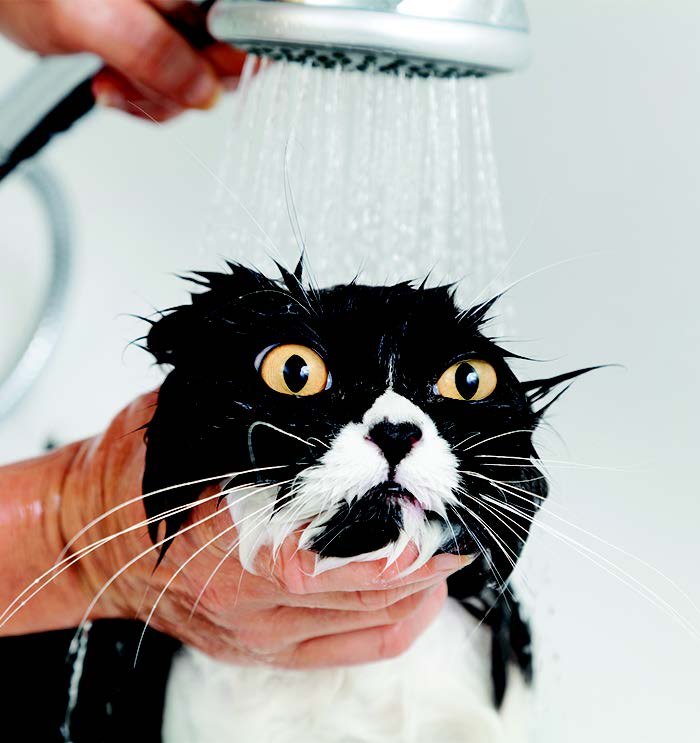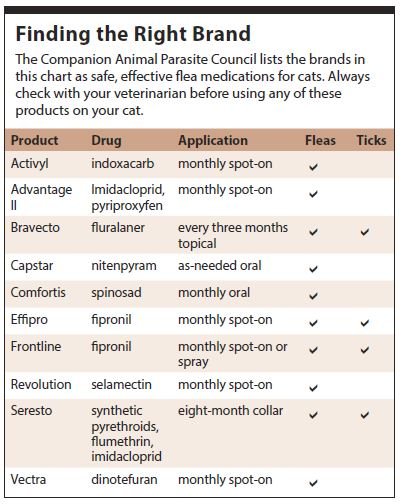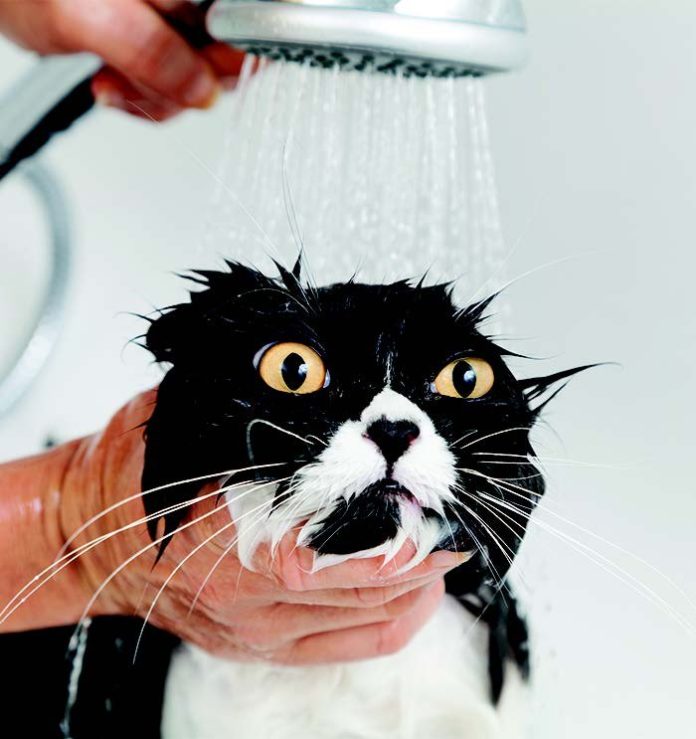edu1971 | Deposit Photos


Ctenocephalides felis is a big name for a tiny insect that is a huge pest: the cat flea. While other fleas may infest your cat, this is the most common species to affect cats.
Fleas are amazing athletes and can jump quite high. Flea eggs are laid on their host (in this case your cat), then drop off and develop in the environment. The first larval stage is susceptible to sunlight, but can happily develop in cool, damp areas like leaf litter or in your carpet or under furniture. The pupae normally hatch in eight to 13 days but can stay in their cocoon stage for months without the stimulation of increasing temperatures and carbon dioxide. Once hatched, fleas immediately seek out blood meals and begin reproducing.
Medications for killing fleas may be adulticides that will kill adult fleas and/or they may also contain insect growth regulators, which will prevent the development of the immature flea stages.
Daily oral medications are generally not high on the list of most cat owners, but once-a-month oral flea preventatives are more palatable (no pun intended) for both cats and humans. Still, there are cats who inspire dread at the mere thought of giving them an oral medication.
Flea collars are a good option for many families, although these may not be ideal if you have other pets who might chew on the collar or neck of your cat or if your cat sleeps curled up with you or a child. The collars are generally considered to be safe if chewed but losing these collars frequently can be expensive. Some cats may have localized skin reactions to flea collars.
Monthly topicals are popular. Depending on the exact ingredients, fleas may be repelled, killed, and/or prevented from successful reproduction. It is extremely important to use these products exactly as directed by the package label. Make sure your cat fits the age and size requirements for a certain product. Only use the feline versions (some canine versions are toxic to your cat).
There are also sprays that can be applied directly to your cat, and some of these may be effective for as long as 30 days. Extreme care must be exercised in applying these products to avoid inadvertent application to the eyes and mouth.
The Pet Poison Helpline suggests that you always check with your veterinarian before applying any of these products to your cat, and you should never use a canine flea product on a cat. Common side effects include vomiting, diarrhea, skin irritation, drooling, and even seizures. If your cat shows a reaction, bathe her and contact a pet-poison control center and/or your veterinarian.
Another good reason for having this discussion with your veterinarian is your geographical area. Some products are not as effective in one area as another, and your veterinarian is the best resource for advice in this regard.
Read labels to see if the product repels and/or kills and what pests it is effective against, so you can ensure you have the defense you need. We do advise you to consider products that are also effective against ticks, as one product for both can be a safer and easier alternative for your cat than using two.
Finally, a word about natural flea-control products: Many of us are attracted to “natural” products. Remember that just because it’s marked natural that doesn’t mean it’s safe, especially for cats who are sensitive to any drugs or herbs. Debates continue regarding the effectiveness of natural flea products, so if you are determined to use one, discuss the option with a veterinarian.
A Word from Cornell’s Community Practice Service
Leni Kaplan DVM MS of the Cornell Small Animal Community Practice Service offers insights into the sometimes difficult choice of a flea product:
-There is no one flea product we find most effective or popular. All the products we recommend are effective.
-Not all patients respond favorably to a given product. So, a product that works great on one pet may not work as well on another.
-Pet owners have different product preferences. Some love topical products, while others prefer orals.
-Certain products will work more effectively or be better tolerated by patients depending on the patient’s lifestyle and medical conditions/health status.
Finding the Right Brand
The Companion Animal Parasite Council lists the brands in this chart as safe, effective flea medications for cats. Always check with your veterinarian before using any of these products on your cat.
Click Image to Enlarge






